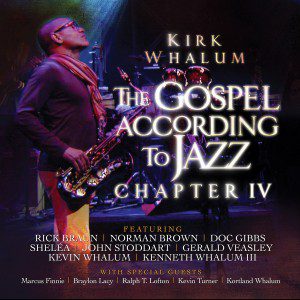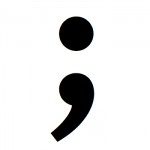 Christian music, like Christianity itself, is a many-faceted thing. It encompasses Handel’s Messiah and “Amazing Grace,’ Bill Gaither and Lecrae. For most of us, Christian music isn’t tied to a particular style, but rather to the message the music conveys—lyrics that speak of God’s grace and truth and love.
Christian music, like Christianity itself, is a many-faceted thing. It encompasses Handel’s Messiah and “Amazing Grace,’ Bill Gaither and Lecrae. For most of us, Christian music isn’t tied to a particular style, but rather to the message the music conveys—lyrics that speak of God’s grace and truth and love.
But can music be Christian if it has no lyrics at all?
Kirk Whalum thinks so.
Whalum is perhaps best known for his saxophone solo on Whitney Houston’s 1992 smash “I Will Always Love You,” and his 30-year career encompasses a 26-album discography and 12 Grammy nominations (and one win, in 2011). He’s also an ordained minister, and throughout his career, Whalum has used his music to give voice to his faith—most notably with his Gospel According to Jazz series, the fourth chapter of which just came out this year. (You can order the two-volume, 19-song album and what it called a “docu-musical” DVD from Whalum’s own website, and naturally download the album on iTunes and Amazon).
I love jazz music. I often listen to it while I write, actually—Miles Davis, John Coltrane, Dave Brubeck and others—but I never thought of instrumental jazz as spiritual. Being a word guy, I associate Christian music with lyrics that somehow allude to Christianity. Ours is a story, and stories have words.
And as I thought about it a bit more, it occurred to me that what we tend to think of as Christian music these days—worship music and CCM—is a reflection of how we evangelicals tend to like our faith. The tunes are melodic (if somewhat repetitive). They can be beautiful (though not always inventive). And the message, delivered in rote verse-chorus patterns, is unmistakable. It’s all nice and safe.
Jazz—especially in the hands of a maestro like Whalum—is a different beast. It feels unpredictable and even dangerous, what with its strange, swooping digressions and syncopated dalliances. And while some of The Gospel According to Jazz Chapter IV dabbles in the familiar (one of the highlights for me was the reinterpretation of Paul McCartney’s pop ditty “Let ‘Em In”), there’s always an element of uncertainty: An element of sonic discovery that, in a way, reflects our often unpredictable, sometimes dangerous and always organic walk with God.
“Ever since I was a little boy playing the horn, I knew that there was a third party, you know,” Whalum told me during a recent phone interview. He believes that third party is God—entwining and informing the freeform improvisation that’s such a part of jazz. The music, in those moments, are guided not just by Whalum’s fingers, but by what Whalum calls the “inner quest and the inner desire to know our Creator. By definition it’s not tangible.”
Whalum was exploring the spiritual side of music well before he was introduced to jazz. His father was a pastor, and he remembers playing “Amazing Grace” in his dad’s church when he was in first or second grade. Jazz came later, when his school’s band director heard about his talents on the sax and, essentially, drafted him into the jazz band.
 “I became fascinated with the spirituality of jazz music,” he says. That fascination eventually led him to Memphis Theological Seminary, where he wrote his master’s thesis on the connections. And he’s continued to explore those themes on his Gospel According to Jazz albums with other well-known musicians and members of his own talented family. His brother, Kevin, does the vocals for “Let ’em In,” for instance.
“I became fascinated with the spirituality of jazz music,” he says. That fascination eventually led him to Memphis Theological Seminary, where he wrote his master’s thesis on the connections. And he’s continued to explore those themes on his Gospel According to Jazz albums with other well-known musicians and members of his own talented family. His brother, Kevin, does the vocals for “Let ’em In,” for instance.
I doubt that McCartney ever intended for that song to be a metaphor for God’s own welcoming grace. But it becomes that in the hands of the Whalums—God’s “radical hospitality,” Kirk says. “Gatekeepers, they come up with these litmus tests (to determine whether you’re worthy) to belong to this club,” he says. “But if it’s not radical, it’s not really God.”
Whalum et al also drill down into some radical honesty through a blues song—a musical genre sometimes thought too gritty to be spiritual. But Whalum says that, in a way, “the spiritual life is [about] honesty. Honesty about your doubts. Your fears. Sickness.” And in Whalum’s surprisingly upbeat “Cain’t Stay Blue,” the genre’s honesty is given a more affirming message. He quotes some lines from the song:
At the end of me, Lord
I found you.
Since you set me free
I can’t stay blue.
Whalum believes that his music is, in a sense, a sacrificial gift. And, whether that music contains words or no, he believes that it both honors God and subtly spreads His love. His blending of the Gospel message with jazz music, he admits has experienced some success—not just in jazz circles, but in opening doors elsewhere. “I would submit that it’s a God thing,” he says. And he believes that the music might help stretch Christians a little.
Whalum says that, when you dive into the New Testament, you find passages that draw comparisons to God and the wind—passages that have special meaning for Whalum, who takes “wind,” as it were, and gives it tone and structure. He quotes from Acts 2:2: “And suddenly there came a sound from heaven, as of a rushing mighty wind, and it filled the whole house where they were sitting.”
“As a horn player, I take that personally,” Whalum says.
Sometimes, you don’t need words to talk about God. You just need a little wind.













